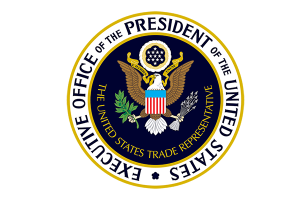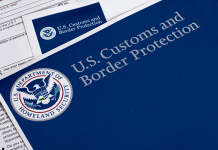 The California Chamber of Commerce joined more than 300 other organizations last week in urging the Office of the U.S. Trade Representative (USTR) to refrain from imposing proposed actions against China that will hurt U.S. businesses and consumers instead of deterring China’s broader maritime ambitions.
The California Chamber of Commerce joined more than 300 other organizations last week in urging the Office of the U.S. Trade Representative (USTR) to refrain from imposing proposed actions against China that will hurt U.S. businesses and consumers instead of deterring China’s broader maritime ambitions.
The USTR proposal is in response to the Section 301 investigation of China’s targeting the maritime, logistics and shipbuilding sectors for dominance.
The March 24 letter to the USTR was signed by organizations representing a wide breadth of the nation’s economy, including importers, exporters, farmers and agribusinesses, retailers, manufacturers, energy providers, wholesalers, transportation and logistics providers, and other sectors.
The coalition supports scrutiny of China’s efforts to dominate the maritime industry but argues that the USTR’s proposed actions will not deter China’s broader maritime ambitions and will instead directly hurt American businesses and consumers.
Impact of Fees on Shipping Costs
The letter explains specifically how USTR’s proposed fees will increase shipping costs, container and non-containerized, by at least 25% ($600–$800 or more), adding approximately $30 billion in annual costs on U.S. businesses and farmers.
This will lead to higher prices for U.S. consumers and undermine the competitiveness of many U.S. exports — leading to a decline in export revenues and increasing the U.S. trade deficit, contrary to the Trump administration’s America First trade goals.
Investigation
The USTR opened the investigation in April 2024 at the request of the United Steelworkers and four other unions, under Section 301 of the Trade Act of 1974, as a way to rebuild the U.S. shipbuilding industry.
The USTR released the results on January 16, 2025 in a 182-page report on the decline of U.S. shipbuilding and U.S. flag carriers, focusing on the dramatic expansion of China’s shipbuilding and ship operating sectors.
The report concluded China increased its share of global shipbuilding tonnage from 5% in 1999 to more than 50% in 2023 because of massive subsidies from the Chinese government and preferential treatment for China government-owned enterprises that are squeezing out private sector international competitors.
However, a March 2025 study assessing the probable net economic effects of the proposed remedies found that overall, total exports and imports would decline, having a negative impact on the U.S. economy while the administration is striving to grow the overall economy and create jobs around the country.
The study prepared by Trade Partnership Worldwide, LLC, concluded that ocean carriers will respond to USTR’s fees by reducing service to many U.S. ports (creating bottlenecks at larger ports like Los Angeles/Long Beach) and potentially diverting cargo to ports in Canada and Mexico based upon customer demand. The carriers’ response will reduce ocean traffic at many smaller ports (such as Oakland), creating profound economic damage — including lost jobs — in communities where ports serve as vital economic hubs.
The proposed remedies include significant “port service fees” against Chinese-built ships every time they enter a U.S. port. The fee also will apply to operators who have Chinese-built vessels in their fleet or have Chinese-built vessels on order. The remedy also includes a requirement for U.S. exporters to export a certain percentage of goods on U.S.-owned, operated and eventually built vessels.
The coalition acknowledged that USTR is proposing export requirements to support a domestic shipbuilding industry and emphasized that all 300-plus organizations signing the letter share the goal of finding real remedies to address China’s dominance in the maritime industry, while also revitalizing the U.S. shipbuilding industry.
Public Hearing
USTR held public hearings on March 24 and March 26 regarding proposed actions in the Section 301 investigation on China’s targeting of the maritime, logistics, and shipbuilding sectors for dominance.
There was a mix of support and opposition to the proposed remedies, which will result in fees ranging from $1 million to $3 million — even as high as $3.5 million per port call. Unions and steel makers were supportive of the remedies, while carriers, shippers and farm exporters were strongly opposed. There were 400 comments submitted and more than 30 witnesses.
All agreed that China’s dominance of the shipping industry should be addressed as the United States has lost more than 70,000 jobs in the last few decades and now ranks 19th globally in shipbuilding. Further, while China builds more than 1,000 ocean vessels for commercial use per year, the United States produces fewer than 10.
Next Steps
The USTR now must make recommendations based on the proposal and testimony. It is expected this will be by mid-April — a year after the investigation began.
Staff Contact: Susanne T. Stirling


